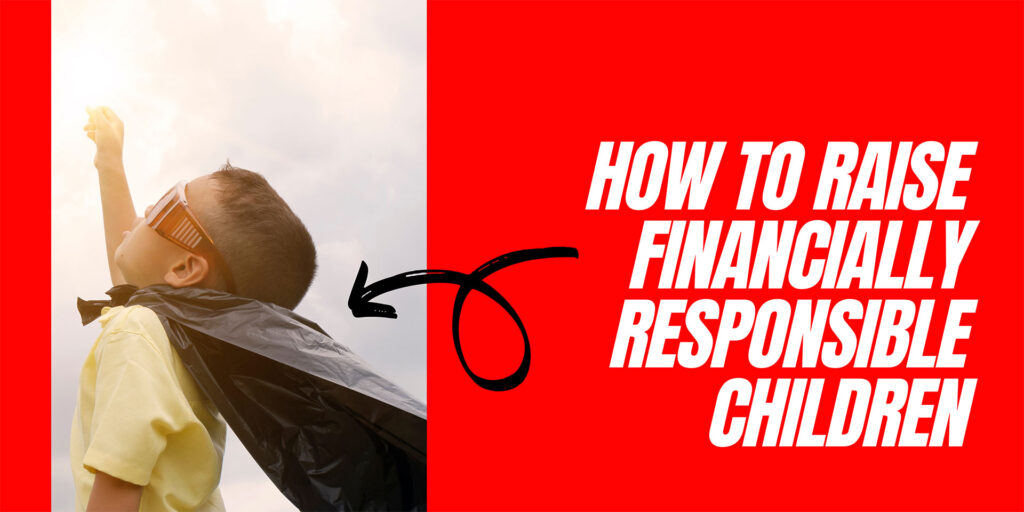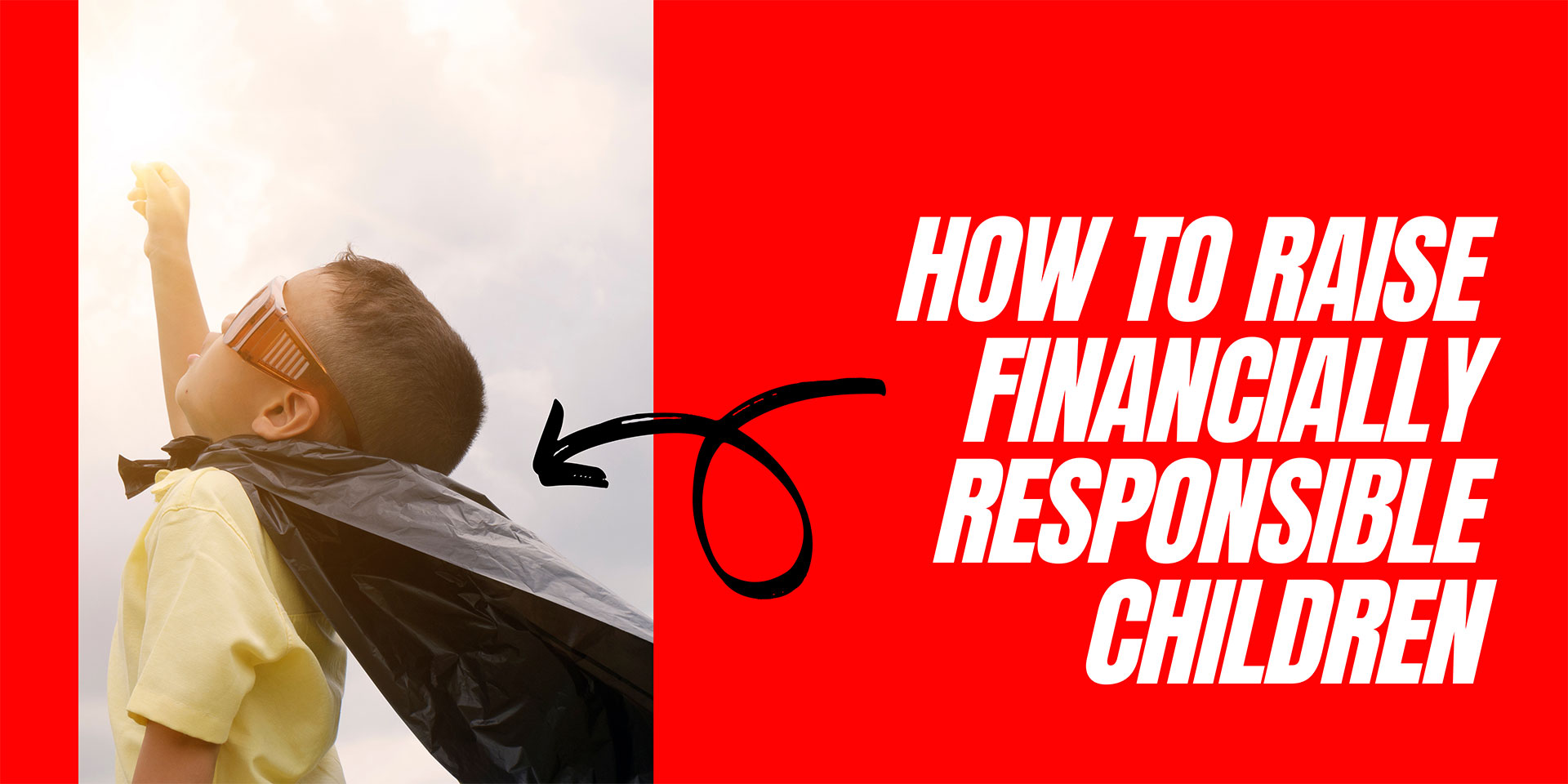
Table of Contents
Who Is A Financially Responsible Person?
A person who manages money and similar assets in a productive way can be considered as a financially responsible person. It is an important duty of a parent to raise their children as financially responsible person.
On so many ways, raising a financially responsible child is a gold mine. Consider the advantages of debt avoidance, personal responsibility, and increased confidence, in addition to the apparent practical application of learning how to utilize, save, and invest money.
As parents, one amongst our main goals should be to show our kids how to be financially responsible. Fortunately or sadly, financial knowledge could be a talent that, when polished, may offer your children a large leg up, but if ignored, can put them at a big disadvantage that may be tough to beat. Of course, the tactics for raising financially responsible children vary reckoning on the age of the kids, but why not begin early? Take a glance at the ideas we’ve provided below to raise financially responsible children.
Involve Kids In Discussions About Managing Money
Even though It is not advisable to pass off adult stress to kids , we can start talking about the monthly budget and expenses with them. As we discuss or talk with them about the monthly income and expenses, it incurs a basic understanding of the cost of living in them. When the kids ask about the bills and expenses, try to answer them in a clear and non-emotional way. Don’t scare them about the expenses and make them stresses about the money even before they are old enough.
But we can teach them few important points:
- To pay the bills first –Treat saving money like a bill, hence saving money come as a priority.
- Next buy groceries – This amount can be different each month as per the availability of the fund and the change in needs.
- We get to use what is left behind for fun – It is not necessary to have fun activities to be costly.
It is terribly simplistic, yet it is a discourse that our children can grasp. You must save money on the top if you want money to be left at the bottom. And the “value” of money is measured by the amount of safety it can provide for you and many others. Not in terms of how much things you can obtain.
Difference Between Value Of Money And Values Around Money
When we teach our kids the importance of being financially responsible, keep in mind their age and exposure to society. There is a difference in the viewpoints and level of understanding between a teenager and a younger kid. By teenage, the kids should be aware of the cost of living and the importance of having an income to sustain the standard of living. Make sure they know how to do things like keeping a budget, management of a bank account, etc. by the time they are ready to live away from parents for their further studies.
By doing this we can be sure that they will do fine as we spend many years ahead the core values around money. Teach them that money is good and it is also just a tool. It can be uses for good things as well as bad things. Only difference is how we use it. The results are the reflection of the person who is spending it and not money alone.
Even small kids may understand that they have a certain quantity of money to spend and that different goods cost different amounts. This might be a good place to start learning about budgeting. Give your kids a little money to spend on something (or some things) they want. They will swiftly determine whether what they want to buy will cost more money (requiring them to save) or whether they can afford it now. Empowering youngsters can go a long way toward gaining their acceptance of this “game.”
We should try to make an impression upon our kids that money does not make you good or bad. It is what your decisions about what to do with it makes you so.
Saying “No!” Isn’t A Bad Thing.
It is critical that you do not give in to every request made by your children. You may be doing more harm than you know if you continue to give in to avoid the trouble. Giving in may have an impact on future decisions by teaching youngsters that it is OK to not turn down one of their own wishes, and by doing so, you are creating standards that they may not be able to maintain in the future, leading to the use of credit cards.
Teach Kids Financial Responsibility By
1.Take Your Kids For Grocery Shopping
Take help from your kid to make a shopping list by checking the pantry first. Take them along to the grocery store and get their help in selecting items as per the budget. We can do this with a smaller list with our small kids and in a bigger way with our older child. This will instill a sense of being financially responsible.
2.Give Them Chance To Manage Money
Allow them to handle real money. Real-life experiences are incomparable. Begin with easy tasks such as going shopping. Make your children count money and handle cash. They need to know how to do it, but they also need to look and feel comfortable doing it. Consider purchasing for family around the holidays. Decide on a figure and wait to see how they come up with it. It’s OK to provide recommendations, but you should let them make their own decisions and be financially responsible.
3. Teach To Save First Spend Later
We must teach them the basic rule to become a financially responsible person is to save first and spend later. Show them how we manage our bills and savings from our income. Reward them for responsible spending behavior and motivate them to save more by giving them bonus.
Teach the savings, spending, and giving paradigm to your children. With every money we earn, we must make this essential choice. When it comes to bank accounts and budgeting, this is a good activity to do with older kids. We can have three labeled, visible jars for little children to choose from with the money they earn and see the results. Ascertain that all children are taught to save for a specific goal, such as a certain item or a vehicle. Teach them to put money down for a long-term goal.
4. Demonstrate How To Match Income And Expenses
Teach them how to adopt a life style that matches our income and expenses. Set an example by avoiding overspending and overindulgence. Spend on cars and houses as per our needs and not as per our status.
Matching their funds and explaining why and how you can do it. If you are in a position to do so, consider matching the money your children have worked hard to save for school, prom, a vehicle, and other costs. Explain why and how you’re able to match their contributions.
To keep with the empowerment concept, make a list of things your child can purchase for, say, INR100 (for example, one item that costs INR100 or a combination of lower-cost products that add up to INR100). Then give them the option to select. They gain a sense of freedom and happiness from being able to choose what they want. Hopefully, they’ll want to keep pushing themselves with these financial decisions in the future.
5. Pay Your Bills On Time
This is an important guideline to remember. This might be a time to talk about good and poor credit. For older children, this is a very useful lesson.
6. Importance Of Charity And Giving Back To Society
Kids should be aware of the importance of giving back to society is also an important towards financially responsible personality. This is an important element of financial responsibility that is giving back. Teach them how to make a charitable donation to a good cause or organization. Yes, teach children the importance of philanthropy as a kind of financial responsibility.
7. Encourage Entrepreneurship
Encourage them to succeed and fail in small ways with money. This will help them to apply these lessons later in their life in larger scales. Make a young entrepreneur and encourage him or her to succeed. Students will have a better understanding of how to apply those skills on a larger scale through experiencing small-scale financial success and failure.
8. Start A Savings Bank Account
Take your child to the bank for a field trip, and then create a savings account on their behalf once they’re a little older. Use this time to educate children about the financial system and how they may benefit from it now and in the future. Have your youngster create a bank account with a debit card if and when they get a job. Consider applying for a credit card only if they’ve proved themselves to be economically responsible adults or soon-to-be adults. This is an excellent primer on the notion of a credit score.
Final Note
As we all know, there are a lot of people who are not financially responsible people out there, and most of it is due to a lack of exposure to knowledge and opportunities as a child. Set a firm foundation for your children so that their connection with money remains positive as they develop into contributing members of society.




